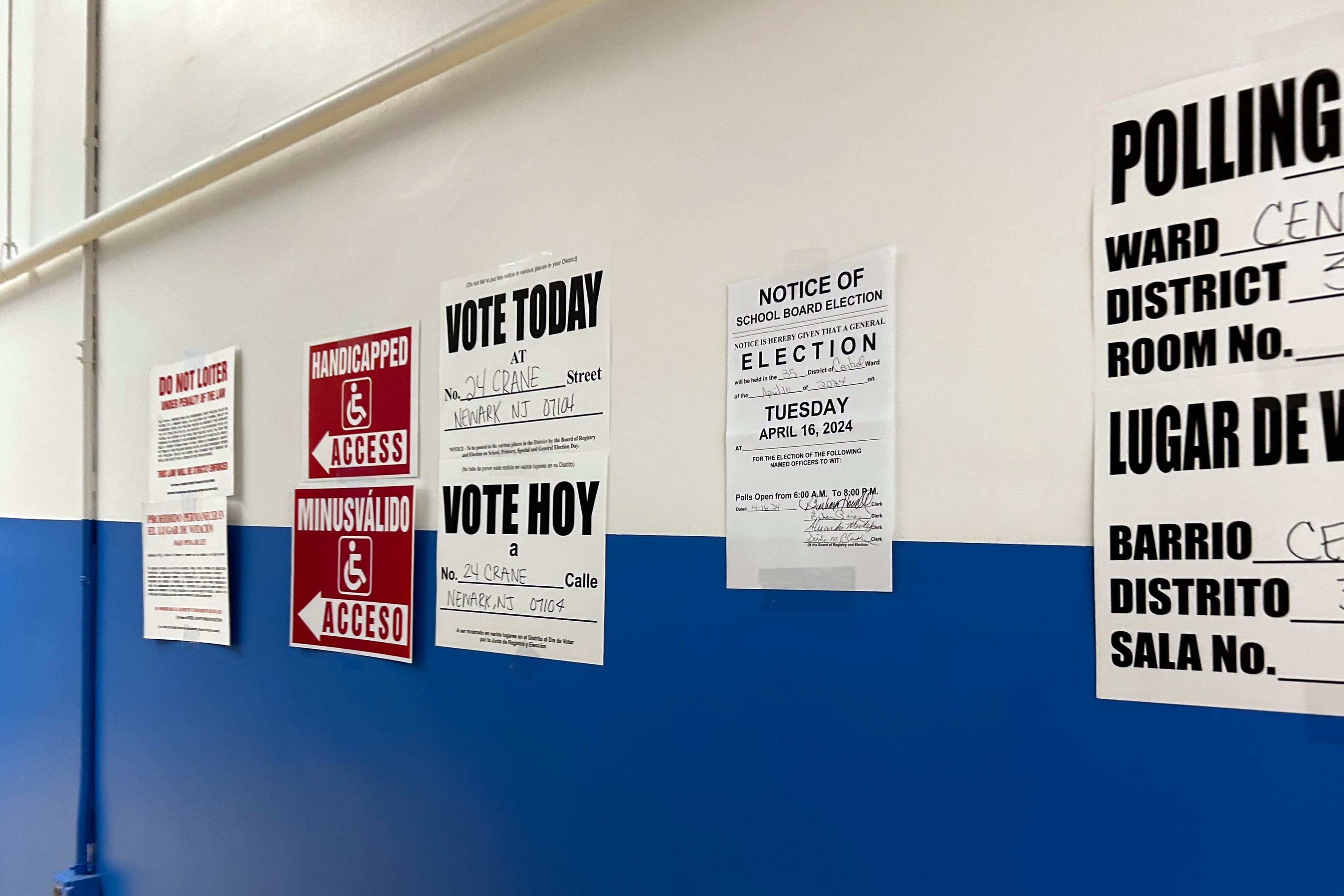Sign up for Chalkbeat Newark’s free newsletter to get the latest news about the city’s public school system delivered to your inbox.
Newark voters will choose from a mix of returning and new candidates in next month’s school board election, including one incumbent running to keep her board seat, three returning candidates, and seven newcomers, the largest number of first-time contenders in recent years.
The 11 candidates are running for three seats on the nine-member Board of Education and are divided between two three-member slates – “Moving Newark Schools Forward,” a city-backed group that has won every election since 2016, and “Prioritizing Newark’s Children,” a new group formed by a former school board candidate – and five candidates running independently. The three winning residents will serve a three-year term.
A drawing on Wednesday determined the order of names appearing on the April 15 ballot. It is subject to final approval by the Essex County Clerk’s office on Friday.
This year’s school board race is also a historic moment for the city’s 16- and 17-year-olds who will cast their votes for the first time. City and school leaders are already working to get youth registered and ready to vote.
Newark leaders have also raised concerns about voter turnout in the annual school board election that has historically seen around 3% to 4% of registered voters participating. But this year, 7,257 16- and 17-year-olds in Newark have the right to vote and influence this year’s election, according to data from the New Jersey Institute of Social Justice.
The winning candidates will decide policies in New Jersey’s largest school system, which is home to just under 40,000 students across 64 schools. The board is also tasked with holding the superintendent accountable, approving district contracts, and last year, approved a $1.5 billion budget.
The candidates will have to work to gain the support of new young voters and address the public school’s most pressing issues such as managing district finances, transportation, facilities needs, academic recovery efforts, implementing federal and state policies, and supporting its growing number of multilingual learners and students with disabilities, among other needs.
They must also contend with recent criticism from the community over transparency in addressing racism in schools, the school boards attempt to remove one of its longest-serving members, the district’s decision to roll back on paying board members’ attorneys fees in their fight against an ethics complaint initiated by a high school principal, and the board’s approval of thousands of dollars for a staff fun day that the state’s education department deemed an inappropriate use of funds.
First-time candidates join incumbent on city-backed slate
School board member Kanileah Anderson is running for reelection along with newcomers Louis Maisonave Jr. and David Daughety on the “Moving Newark Schools Forward” slate.

Anderson was appointed to the board last year and ran unopposed last April in her bid to complete a one-year term. Known for her community and advocacy work with Newark students, Anderson has rallied around education issues and recently advocated for more resources for special education students in the district. Before running in last year’s school board race, she was appointed to fill a vacant seat left by former board president Asia Norton, who abruptly resigned.
First-time school board candidate Maisonave is a Newark firefighter and president of the Hispanic Firefighters Association of Newark. Maisonave also brings his experience working with city leaders and local organizations to the Moving Newark Schools Forward slate.
Daughety is also a first-time candidate, Newark Public Schools alum and Youth Impact Program Coordinator at the Center for Justice Innovation. He is also a 2020 Arts High School alum and during his high school years, wrote a policy amendment that established the district’s first Student Governance Committee.
All nine current board members were on the “Moving Newark Schools Forward” slate during their elections. The slate garners support from state and local politicians, including Mayor Ras Baraka and state Senate Majority Leader M. Teresa Ruiz, every year.
Former school board candidate forms new slate
Returning candidate Ade’Kamil Kelly is running alongside a duo of newcomers, Shana Melius and Nathanael Barthelemy, on the “Prioritizing Newark’s Children” slate. Kelly brings his experience of running in the 2023 school board race and recruited Melius and Barthelemy, who come from educational, political, and community-oriented backgrounds.

Kelly is a program director at the Boys and Girls Club of Newark and has worked as a mentor for the Big Brothers, Big Sisters organization of Essex County and as a volunteer basketball coach in Newark. According to his biography online, Kelly “embodies community service and personal growth, influenced by family values.”
Melius previously worked for the late Rep. Donald Payne Jr. and served as his digital coordinator and constituent services staffer. Last year, she ran for public office for the first time to fill the 10th Congressional District seat left vacant by Payne Jr. but lost the election.
Barthelemy has never run for public office but brings community-based work experience as a program manager at the Unified Vailsburg Service organization and speaks Haitian Creole.
Five independent candidates vie for seat on board
The two slates are joined by community advocates and returning candidates, Latoya Jackson, a two-time school board candidate, and Yolanda Johnson, a three-time candidate.
Jackson, a first-time candidate in 2023, founded the nonprofit T.O.Y.A, Through Obstacles You Adapt, after losing her bid for a school board seat that year. She is a hair stylist and mother of a Newark Public School student focused on special education issues and empowering parents.
Johnson ran for school board in 2018, 2019, and 2021. In 2014, she started the Eagles Parent Teacher Student Association (PTSA) at George Washington Carver and Bruce Street School for the Deaf under the National Parent Teacher Association, where she was the president.
The candidates are also joined by newcomers Elaine Asyah Aquil, a mother, grandmother, and local chiropractor with over 29 years of experience, Jordy Nivar, West Ward district leader, and city resident DeWayne Bush.
New voters, including youth who will be 16 or 17 by the April 15 election, can register to vote by March 25. Residents can vote at their designated polling location or vote by mail if they register for that option by April 8. Ballots must be postmarked no later than April 15 and must be received that day before polls close.
Jessie Gomez is a reporter for Chalkbeat Newark, covering public education in the city. Contact Jessie at jgomez@chalkbeat.org.






